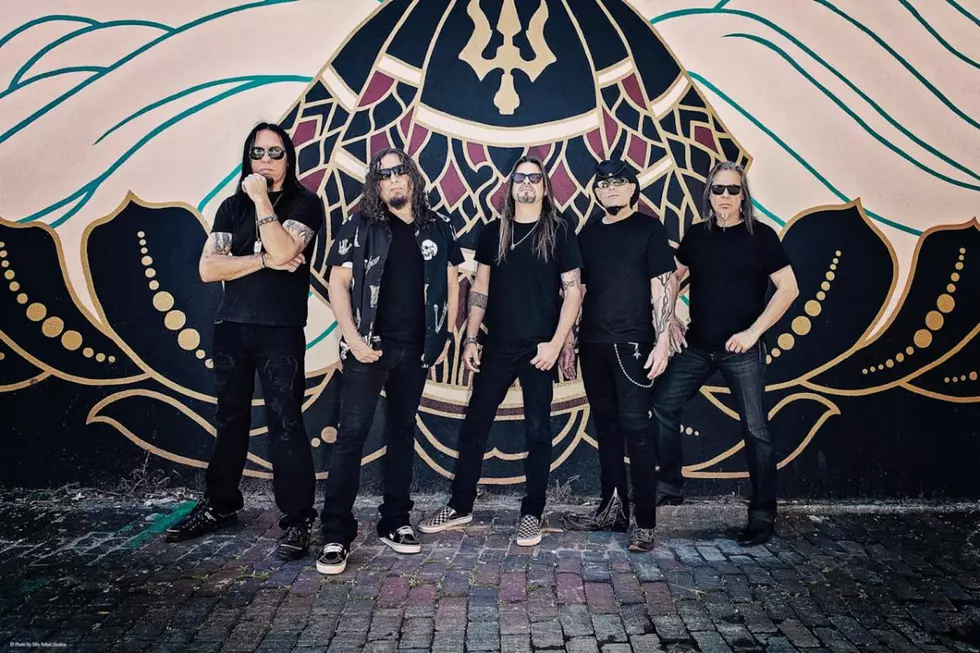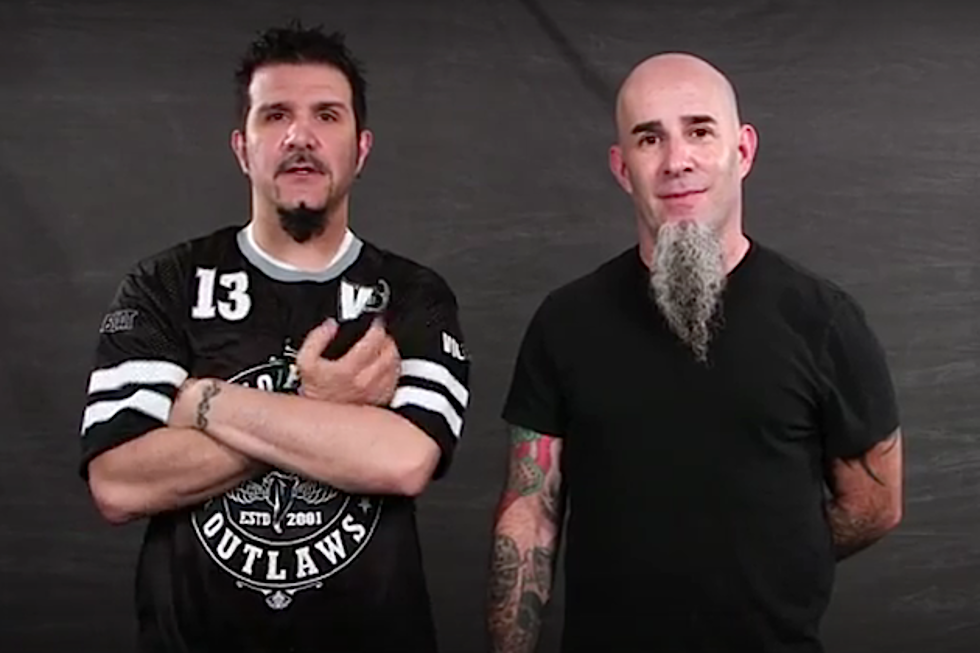
Queensryche Celebrate ‘Empire’ With 20th Annivesary Reissue
When Queensrÿche released 'Empire,' their fourth full-length album, the music industry's expectations were as lofty as it gets for a hard rock band. It was 1990 and the Bellevue, Wash. quintet had just come out of a long yet fruitful touring campaign for 1988's 'Operation: Mindcrime.'
During that two-year run, Queensrÿche played arena support slots with the likes of Metallica and Def Leppard, and several singles from the album found huge success on MTV. 'Operation: Mindcrime,' a concept album in the spirit of Pink Floyd's 'The Wall,' went gold sometime in 1989, and their label, EMI, wanted to strike while the iron was hot.
The band entered the studio with 'Operation: Mindcrime' producer Peter Collins, and after that album's heavily layered storyline, Queensrÿche were looking for a change. "I remember us just switching into a song mode instead of a theme," said guitarist Chris DeGarmo in a recent interview with the Studio. "I remember the band talking about a 'less-is-more' kind of thing."
Anyone who was already familiar with the group's forward-thinking writing approach wasn't too surprised when the title track single was released a couple months before 'Empire' hit stores. The song's streamlined (by Queensrÿche standards) arrangement and mid-tempo stomp threw off some of the band's newer converts, but the single quickly rose up the radio and video charts.
When the 'Empire' album finally hit stores on Aug. 21, 1990, it was soon obvious that Queensrÿche's less 'metal,' song-focused approach resonated with a wider audience. While they started out as a band influened by the new wave of British heavy metal, Queensrÿche was now being talked about in the same breath as stadium staples like Pink Floyd and Rush. Album cuts 'Empire,' 'Best I Can,' 'Another Rainy Night (Without You)' and 'Jet City Woman' all found success on rock radio, but it was 'Silent Lucidity,' the album's fifth single, that pushed the group into the pop mainstream.
A ballad in the vein of Floyd's 'Wish You Were Here,' 'Silent Lucidity' was written by DeGarmo and features a 65-piece orchestra playing a lush score written by the late, great composer Michael Kamen. The song also contains one of Queensrÿche vocalist Geoff Tate's most vulnerable performances. 'Silent Lucidity' brought the act the most acclaim of their career, and was their only top 10 song on the Billboard Hot 100 chart, but the crossover attention was a bit tough for some of the band members to register. Tate explained, "All of a sudden we were on pop radio and playing award shows. It all got glossy and weird. They were talking to us about creating things like action figure dolls. On one hand, it was all very exciting and glamorous. You had people that were camped out on your doorstep and cameras following you around. You asked yourself, 'Is this what I really wanted?'"
Though Tate struggled with Queensrÿche's new-found mainstream attention, the public had no problem buying over three million copies of 'Empire.' Yes, it took a softer tune to get their feet into the door, but once their new army of fans got a taste of the album, they were greeted with a richly diverse collection of songs that found Queensrÿche at the top of their game. The group finally found the perfect balance between their experimental side, mostly found on 1986's 'Rage For Order' album, and the hook-filled choruses on 'Operation: Mindcrime.' On Sept. 14, the album will be re-released as a double-disc 20th anniversary edition on Capitol/EMI Records. It will include 13 bonus tracks, postcards, a poster and booklet featuring photos from the band's personal archive. Whether you favor Queensrÿche's more traditional, metal-leaning material or their progressive-minded records, 'Empire' is essential to any music collection.
More From Noisecreep









